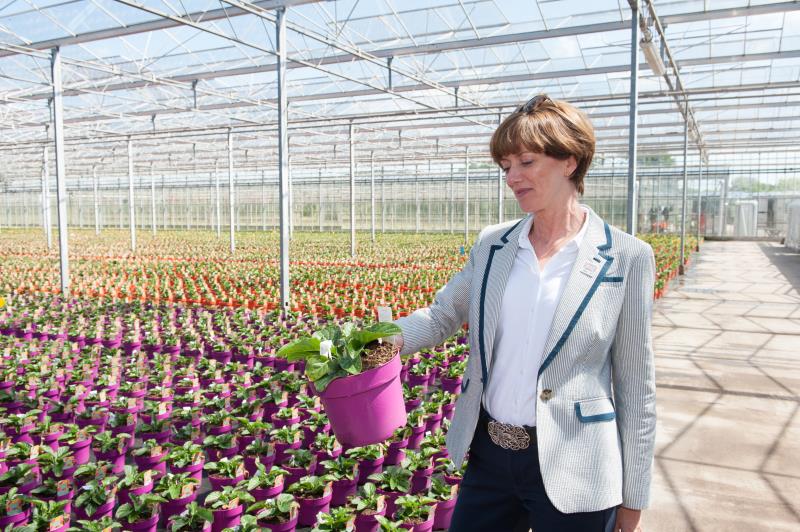As the abundance of summer comes into full swing, the horticultural industry comes into its own. Luscious strawberries, cool crisp salads, juicy tomatoes, delicate new potatoes and vibrant scented stocks fill our supermarket aisles. But it is the abundance of summer that highlights the importance of the horticultural industry…and its vulnerability.
For many, the recent stretch of hot, dry weather has proved challenging with an increased reliance on abstraction. However, the upside is that some plants are gaining much needed ground following the bitterly cold spring that held everything back late this year. On the plus side, the glasshouse crops are enjoying the heat.
But with this heat comes a burst of pressure on those wishing to harvest at this time of year. The requirement for seasonal labour becomes all the more intense at times of glut, and the NFU continues to push government to address the labour shortage our industry is facing to the highest level. Indeed, NFU President, Minette Batters, pressed the issue with the Prime Minister when they met on Wednesday. It frustrates me that Government seems intent on delaying the inevitable – we are running out of seasonal workers and change will need to come. It shouldn’t take an industry crisis before they act.
Further frustrations lie in the continued radio-silence on the future status of PO funding. Existing POs are in desperate need of clarity on whether or not their match-funding from the EU will be continued by the UK government post-Brexit. The clock is ticking and uncertainty prevails.
In the face of these challenges, resilience is key. The good news is that, in my experience, there are few industries as resilient and innovative as horticulture. But realistically speaking, there is only so long that we can take the squeeze.
We need solutions to the challenges that we are facing. Those that we can find ourselves, we will.
For example, in the absence of plants and flowers being included in the remit of GSCOP (despite extensive NFU lobbying), the NFU has developed the NFU Plants and Flowers Pledge which was launched last week. Thank you to Charmay and the team at Lovania Nurseries for hosting our launch. This voluntary code ensures retailers that sign up commit to treating their plants and flower growers under then same principles of GSCOP. Aldi became the first retailer to sign up and the NFU is in discussions with a number of others interested in taking up the Pledge. This is a fantastic step forward for this sector and I hope that both multiple and garden retail will take up the challenge and sign the Pledge.
But there are some areas, such as seasonal labour, where much of the power to solve our problems lies in the hands of others. The industry has already made significant strides in reducing its reliance on seasonal labour through investment in mechanisation for tasks such as seedling transplanting, automated glasshouse systems that monitor heat and humidity and adjust the environment accordingly, or conveyor systems for processing root vegetables. We have paid more, earned less, invested in better accommodation, improved our own business’ marketing to become more attractive to seasonal workers, provided further benefits and perks. But there is one area, particularly for the more delicate of crops, which remains the biggest obstacle of all (and the most labour intensive): harvesting.
The holy grail is a harvesting robot that can do the work of a human with the same level of dexterity and gentility, be able to successfully grade and pack the crop, and at the same (if not better) level of efficiency…at a price that growers can afford/reasonably invest in. This monumental technological accomplishment is the dream that the industry aspires to use one day. Until that dream is made a reality, we will continue to rely on manual labour to do this job. It should not be forgotten that it is because of these fantastic workers that our industry is able to provide the British public with the bounty of horticulture year-round.
